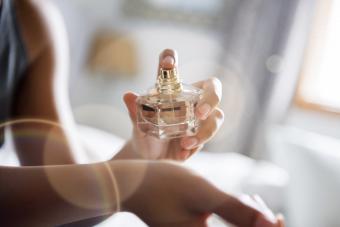
Using theatrical makeup can be lot of fun, however it also requires skill. Knowing when to simplify, how to conceal and reveal certain aspects of the face, and which brands to use can mean the difference between a lackluster makeup job and one that shows a true transformation into character.
What to Know About Using Theatrical Makeup
If you are a participant in any genre of theater or dance, then you understand the excitement of not only discovering your role in an upcoming production, but also the fun of finding out what your character will be wearing. This often includes using theatrical makeup, as it has the power to add age or youth, fright or fantasy, or particular themes and emotions to a performer. Although there are many different ways to apply theatrical makeup, the following tips can apply to virtually any character.
Less Is More
This may not be a popular statement in the world of theatrics, however if you are performing in a smaller venue, makeup should remain somewhat subtle. Pancake makeup, a thick foundation popular in the theater, can quickly cause a fair-faced actress to turn orange. Be sure you use moderation and take your theater size and specific character into consideration before you start caking on the base and blush.
Better Left To Professionals
There are some looks you can achieve through using basic theatrical makeup, however some are more tricky than others. If something looks extra challenging, consider leaving it to someone with professional experience. You may feel fine applying the look when you are toying around at home, but when you are under the crunch and stress of an actual production, you may falter. If you do not have a professional available to you, then consider a scaled down or simpler look.
Know Your Skin
Whether you are applying your own makeup or giving a look to someone else, be sure to be familiar with that particular skin type. Stage makeup can be stifling to pores, and those with sensitive or acne-prone skin can easily have a negative reaction to the ingredients found in such products. Invest in some allergy-tested cosmetics, such as mineral makeup in darker shades than usual, to have on hand for your next production.
Theatrical Makeup Transformations
One of the primary functions of theatrical makeup is to transform individuals into someone or something completely different. This makeup can be used to both conceal and reveal when helping actors go under their transformation. These techniques are often used in big productions or when actors need to look nothing like their normal selves.
The Concealing
Both on stage and screen, one of the principal concealments makeup artists perform on a regular basis is the removal of anything that is connected to real life bodies that make an actor distract or stand out in a negative way, such as an unsightly tattoo. Makeup can be used to conceal the tattoo and help the actor detach from their own self and become more like the roll they are playing. By using concealers, foundation and even face powder a tattoo can become virtually nonexistent with the right theatrical makeup application.
The Revealing
Actors can spend literally hours in the makeup chair before their character is expressed and revealed through the finished product. Everything from false colored contacts to glitter and sprays are used to completely transform the face and hair into whatever it is the actor is portraying. This can prove difficult on an individual, especially those who are in a long running theater production or some other sort of creative endeavor demanding them to be in the same makeup for hours at a time, for extended days and weeks out of the year. However with the right application, this makeup can be used to reveal an almost entirely different looking individual once their makeup is complete.
Basic Tips for Using Theatrical Cosmetics
Although makeup techniques will vary depending the the character and type of look required, the following tips can be used for most sitautions:
- Foundation makeup is typically at least a shade darker than the natural skintone, since stage lights can make the face look washed out.
- Blend face makeup into the jaw line for the best effect.
- Use a shade darker than the foundation to add contours to the face, and a shade lighter than the foundation on areas you want to highlight.
- Use warm tones of blush or rouge.
- Always use powder to set the makeup.
- Use eyeliner, eye shadow, and mascara to make the eyes stand out. Light eyeliner and mascara may be needed for men; false lashes and heavier eye makeup may be needed for females.
What to Buy
There are many sites and costume shops devoted to the sale of stage makeup. It can be a confusing process trying to discover what will work best for your specific production. However, there are a few staple brands that are tried and true, guaranteed to give you a great look for your dollar.
Ben Nye
Based in California, home to countless creative souls, Ben Nye Theatrical Makeup is a great place to find what you need. It is an exceptionally good marketplace for those who need special effects or unique looks such as animal faces or historical period makeup.
Mehron
Mehron is a trusted name in professional theater cosmetics. Products include basics for studio and stage makeup, special effects makeup, specialty concealers, application tools, and cosmetics for the body. They also offer a variety of kits and educational tools.
Looking Your Best for a Production
Using theatrical makeup doesn't have to be a difficult process. Embrace the most basic of kits, as they usually come with instructions. You can also conduct research through books and the Internet, gradually honing your skills over time. Stage makeup application does not come naturally to everyone, however, with the right knowledge and products, you can look your best or be transformed into character for a production.







